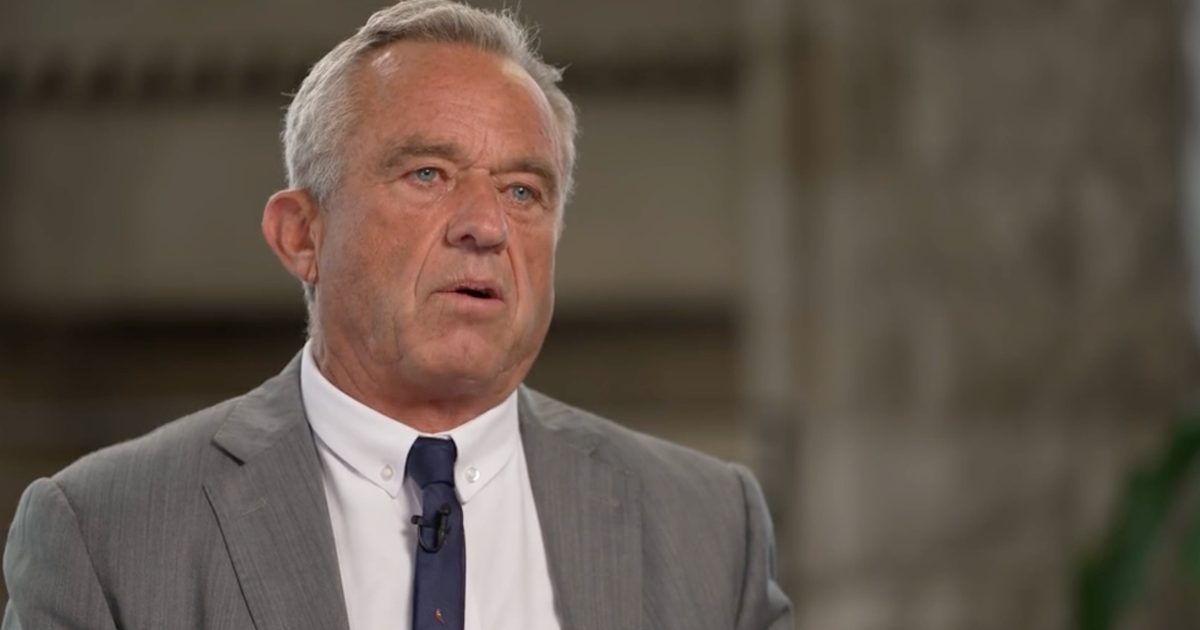Putin replaces long-time defense minister Sergei Shoigu as Ukraine war heats up in its 3rd year
Russian President Vladimir Putin on Sunday replaced his long-time defense minister Sergei Shoigu in a cabinet shakeup that comes as Putin begins his fifth term in office and as his war on neighboring Ukraine grinds on into its third year. In line with Russian law, the entire Russian Cabinet had resigned on Tuesday following Putin's glittering inauguration to a new term in the Kremlin.
Most cabinet members were widely expected to keep their jobs, but Shoigu's fate had appeared uncertain.
Putin signed a decree Sunday appointing Shoigu as secretary of Russia's Security Council, the Kremlin said. The appointment, seen widely as a demotion, was announced shortly after Putin proposed Andrei Belousov, an economist, to become the country's new defense chief.
The announcement of Shoigu's new role came as 13 people were reported dead and 20 more wounded in Russia's border city of Belgorod, where a 10-story apartment building partially collapsed after what Russian officials said was Ukrainian shelling. Ukraine hasn't commented on the incident.
Belousov's candidacy will need to be approved by the upper house in parliament, the Federation Council, but Putin's will is rarely, if ever, challenged by the council or any other government entity in Russia.
The announcement came as thousands more civilians fled from a renewed Russian ground offensive in Ukraine's northeast, which has seen towns and villages hammered with a barrage of artillery and mortar fire.
The intense battles have forced at least one Ukrainian unit to withdraw in the Kharkiv region, capitulating more land to Russian forces across less defended settlements in the contested zone along Russia's western border.
By Sunday afternoon, the town of Vovchansk, among the largest in the northeast with a prewar population of 17,000, emerged as a focal point in the battle. Volodymyr Tymoshko, the head of the Kharkiv regional police, said that Russian forces were on the outskirts of the town and approaching from three directions.
"Infantry fighting is already taking place," he said.
A Russian tank was spotted along a major road leading to the town, Tymoshko said, illustrating Moscow's confidence to deploy heavy weaponry.
An Associated Press team, positioned in a nearby village, saw plumes of smoke rising from the town as Russian forces hurled shells. Evacuation teams worked nonstop throughout the day to take residents, most of whom were older, out of harm's way.
At least 4,000 civilians have fled the Kharkiv region since Friday, when Moscow's forces launched the operation, Gov. Oleh Syniehubov said in a social media statement. Heavy fighting raged Sunday along the northeast front line, where Russian forces attacked 27 settlements in the past 24 hours, he said.
Analysts say the Russian push is designed to exploit ammunition shortages before promised Western supplies can reach the front line.
Ukrainian soldiers have said the Kremlin is using the usual Russian tactic of launching a disproportionate amount of firepower and infantry assaults to exhaust their troops. By intensifying battles in what was previously a static patch of the 600-mile front line, Russian forces threaten to pin down Ukrainian troops in the northeast while carrying out intense battles farther south, where Moscow is also gaining ground.
It comes after Russia stepped up attacks in March targeting energy infrastructure and settlements, which analysts predicted were a concerted effort to shape conditions for an offensive.
Ukrainian President Volodymyr Zelenskyy said that halting Russia's offensive in the northeast was a priority, and that Kyiv's troops were continuing counteroffensive operations in seven villages around the Kharkiv region.
"Disrupting the Russian offensive intentions is our No. 1 task now. Whether we succeed in that task depends on every soldier, every sergeant, every officer," Zelenskyy said.
The Russian Defense Ministry said Sunday that its forces had captured four villages on the border along Ukraine's Kharkiv region, in addition to five villages reported to have been seized on Saturday. These areas were likely poorly fortified because of the dynamic fighting and constant heavy shelling, easing a Russian advance.
Ukraine's leadership hasn't confirmed Moscow's gains, but commanders have acknowledged difficult battles in the northeast. A Ukrainian unit said that they had been forced to retreat in some areas and that Russian forces had captured at least one more village late Saturday.
In a video Saturday evening, the Hostri Kartuzy unit, part of the special forces' detachment of Ukraine's national guard, said it was fighting for control of the village of Hlyboke.
"Today, during heavy fighting, our defenders were forced to withdraw from a few more of their positions, and today, another settlement has come completely under Russian control. As of 20:00, fighting for the village of Hlyboke is ongoing," the fighters said in the clip.
The Institute for the Study of War said Saturday that it believed claims that Moscow had captured Strilecha, Pylna, Pletenivka and Borsivika were accurate, and that geolocated video also appeared to show Russian forces had seized Morokhovets and Oliinykove. The Washington-based think tank described the recent Russian gains as "tactically significant."
In the war's early days, Russia made a botched attempt to quickly storm Kharkiv, which is Ukraine's second-largest city, but retreated from its outskirts after about a month. In the fall of 2022, seven months later, Ukraine's army pushed them out of Kharkiv. The bold counterattack helped persuade Western countries that Ukraine could defeat Russia on the battlefield and merited military support.





